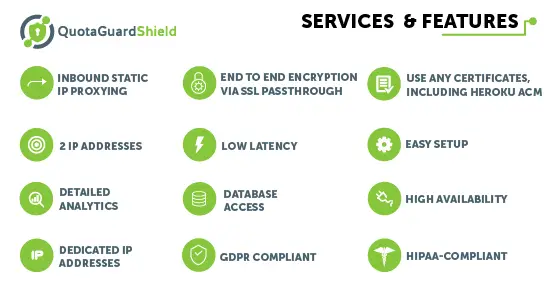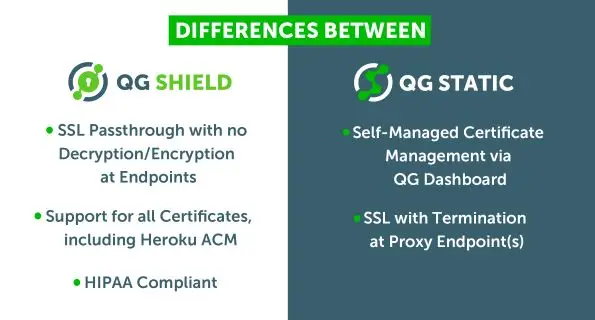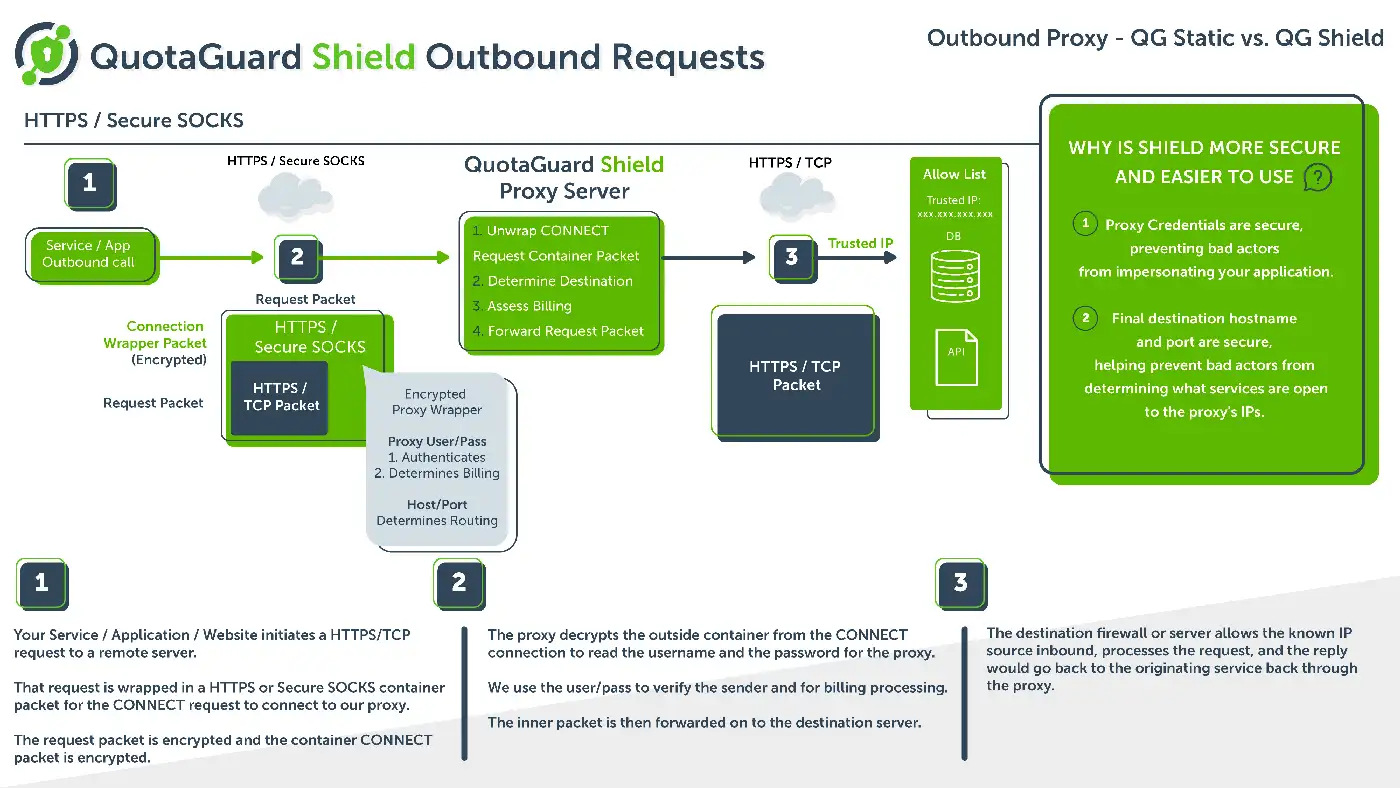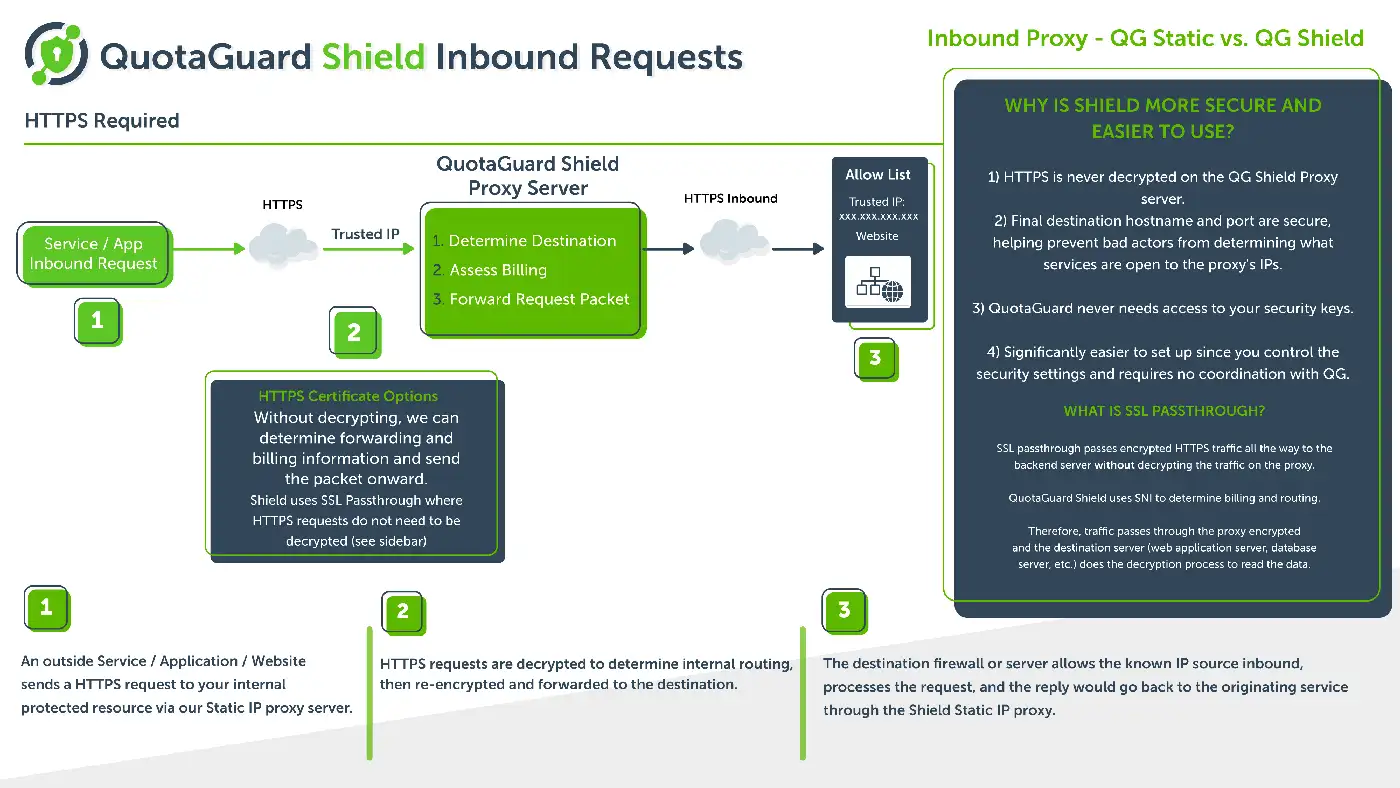Shield was developed at the request of our healthcare customers that required a HIPAA compliant solution that would guarantee a full, end to end encrypted solution and be acceptable for Internet traffic that routes HIPAA, Financial/FinTech, and Personally Identifiable Information (PII), or other secure information.
There were two issues that needed to be addressed to make QuotaGuard Static a truly end to end secure solution.
For security-conscious implementations, even with a full end to end HTTPS connection, the proxy username, password, host, and port are sent in the clear between the internal source and the QuotaGuard proxy. This is true for any HTTP/SOCKS proxy provider (despite what they may tell you).
To enable routing for HTTPS connections, companies had to upload their SSL certificates to an external proxy server, opening up another attack vector that could be exploited in the event of a compromise of the routed traffic or illegitimate network/physical access to the certificate storage location.
Therefore we created QuotaGuard Shield to solve these problems.



